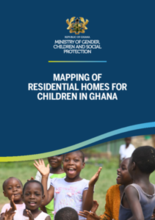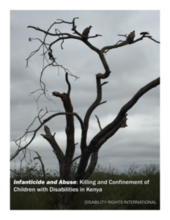Displaying 611 - 620 of 1510
This volume examines typical and atypical development from birth to the preschool years and identifies what works in helping children and families at risk.
The main goal of this article was to explore the correlates of mental health diseases in a sample of 169 children with intellectual disability (6–18 years old) in residential care in Spain compared with a group of 625 children, also in residential care but without disability.
This study examined disruptions in caregiving, as well as the association of these disruptions, with cognitive, behavioral, and social outcomes at age 12 in a sample of 136 Romanian children who were abandoned to institutions as infants and who experienced a range of subsequent types of care.
This study explored whether patterns of catch-up growth affect metabolic and cardiovascular outcomes in previously institutionalized adolescents in Romania.
This report presents the key findings and recommendations from a comprehensive geographical mapping and analysis of Residential Homes for Children (RHCs) in Ghana.
In the present exploratory study 69 case-files of children referred to a Dutch national center for residential youth care for children with intellectual disabilities (ID) were analyzed to assess the prevalence and associations of Adverse Childhood Experiences (ACEs).
This report is the product of a two-year investigation by Disability Rights International (DRI) into institutions and orphanages across Kenya. The report describes the "egregious human rights violations" perpetrated against children with disabilities in Kenya, particularly those who are confined to institutions and "orphanages."
It has long been recognized that early adversity represents a strong risk factor for the development of later psychopathology.
The aim of this study was to examine trajectories of latent psychopathology factors—general (P), internalizing (INT), and externalizing (EXT)—among children reared in institutions and to evaluate whether randomization to foster care is associated with reductions in psychopathology from middle childhood through adolescence.
The purpose of the current study was to explore how adolescent mothers experienced pregnancy and parenthood within the context of residential foster care.


